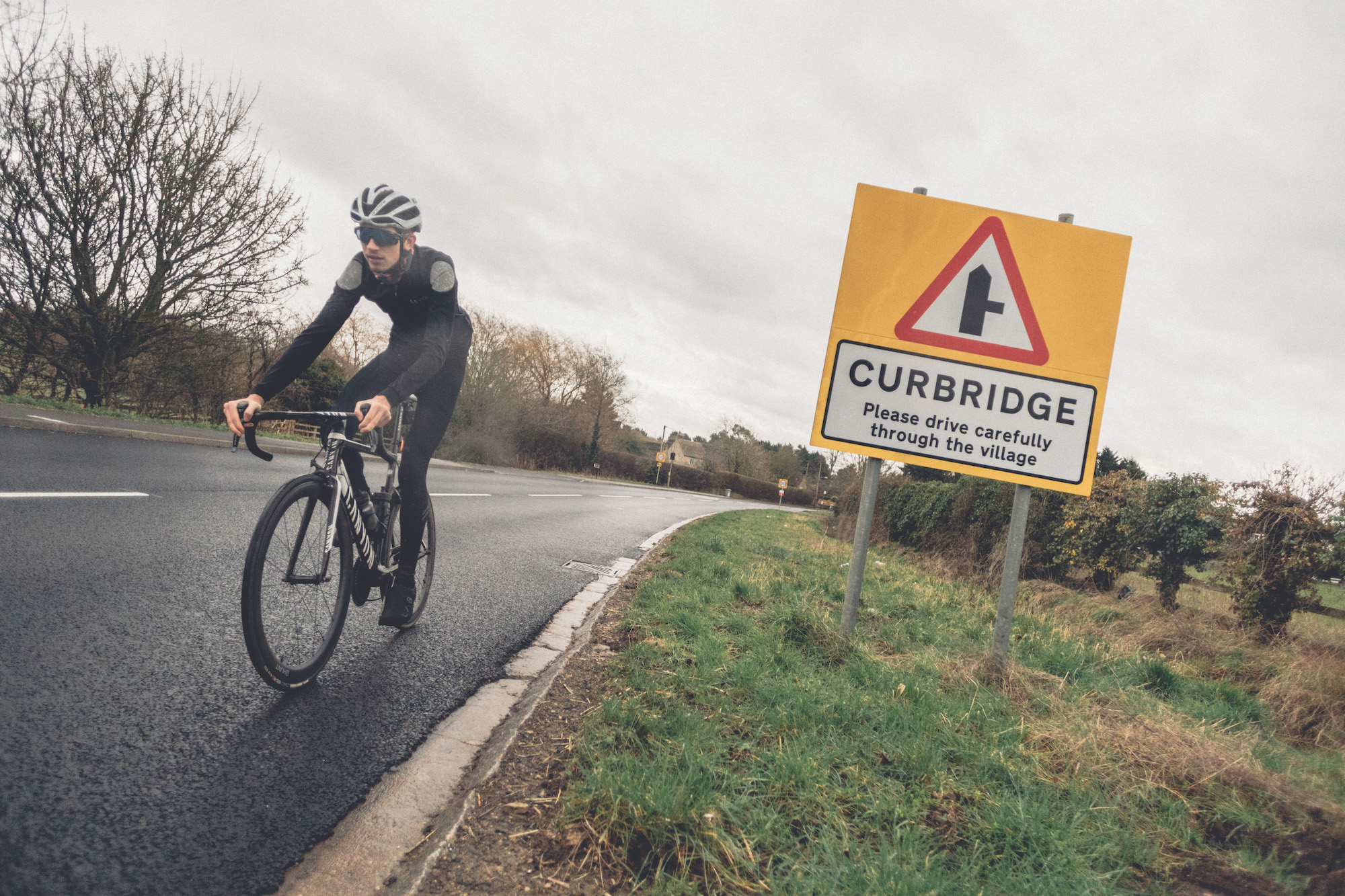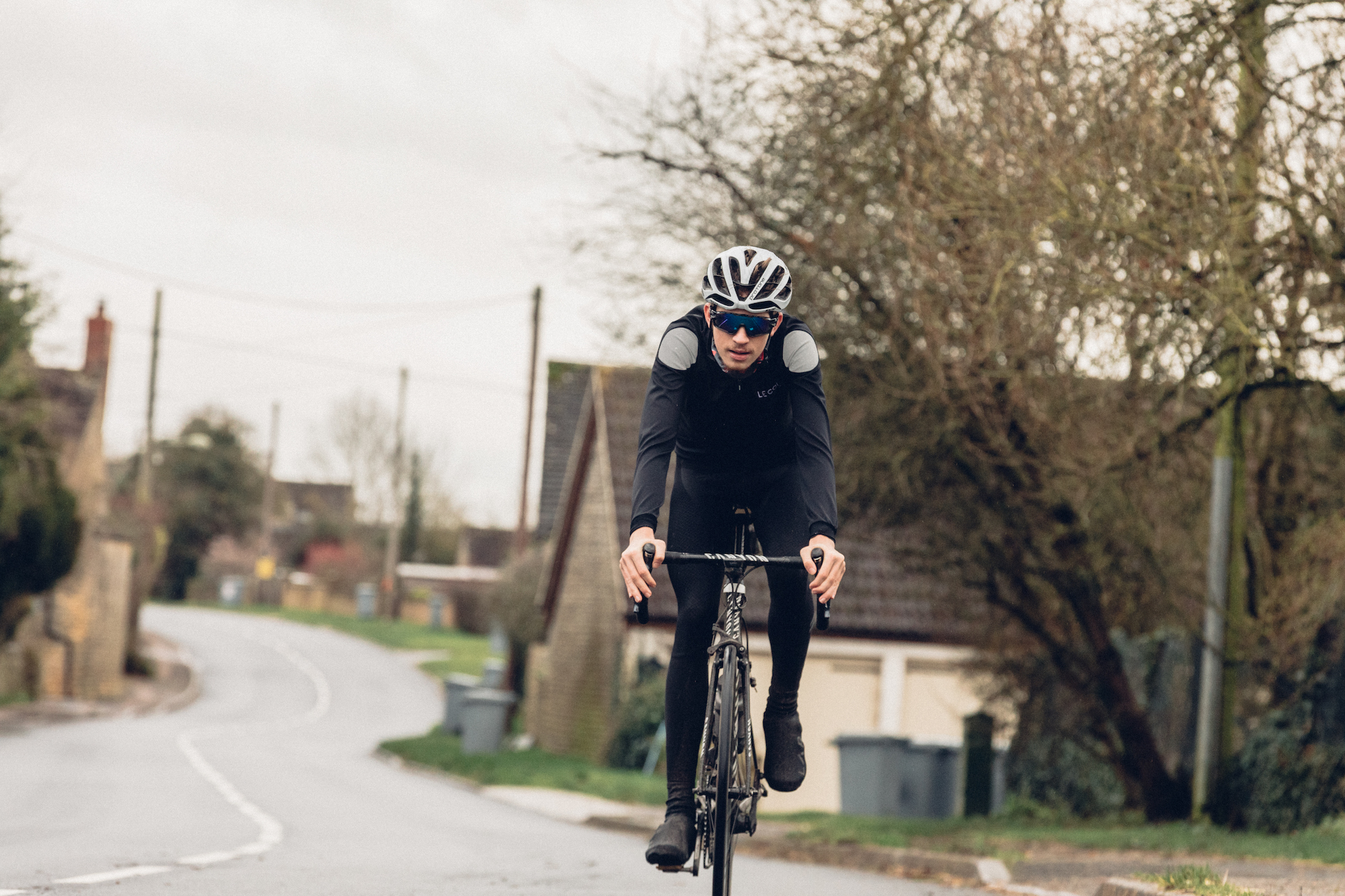Is this Britain's smoothest road?
A new high-tech road surface in Oxfordshire could herald a cycling revolution, we rode it to find out more

Curbridge (Daniel Gould)
The latest race content, interviews, features, reviews and expert buying guides, direct to your inbox!
You are now subscribed
Your newsletter sign-up was successful
Curbridge in Oxfordshire is a pleasant but unassuming little place. Surrounded by gently rolling green fields, there’s an austere charm to the sandy grey cottages that house the village’s 500 inhabitants, all set against the background hum of the nearby A40 Witney bypass. You wouldn’t think it but this could well be ground zero for a cycling revolution.
Main Road, which as the name suggests, runs through the centre of this tiny settlement, was resurfaced in November with graphene-enhanced black top. It’s an experiment to see if the material can be deployed across the country. Like any newly resurfaced road, it’s a smooth, pleasant experience to ride, but that’s not really the point.
"There are thoughts around extending the life by about 50 per cent, maybe more, so you can imagine how huge the potential is," says Richard Lovell, business director for Oxfordshire at construction firm Skanska, which laid the road.
Graphene has been used in a handful of cycling products already, but Lovell explains that here it works by enhancing the "black, gooey stuff" that holds the road together. "When that fails, the stones fall out of the road surface," he says. As graphene is the strongest material ever discovered, you’d expect it to do a better job of holding the stones in. Initial tests with a road laid in central Rome using the same materials have yielded positive results, Lovell adds.
>>> Subscriptions deals for Cycling Weekly magazine
A road in need
Every cyclist knows local UK roads are in need of some loving care. The Asphalt Industry Alliance last month called on the government to invest £15bn in local roads over the course of 10 years to bring them up to scratch. Meanwhile, the Local Government Association puts the cost of bringing local roads up to standard at £9bn. Either way, it’s a lot of money.
The latest race content, interviews, features, reviews and expert buying guides, direct to your inbox!
"It’s getting worse every year," says Sam Jones, campaigner with Cycling UK. "What we’ve got at the moment is a patch-up job. It doesn’t seem to be getting any better."
Local authorities have a legal duty to maintain roads well but if they don’t know that there are issues — they only have resources to check major roads regularly — there is little they can do. Since 2007, Cycling UK has had an app that can be used to report potholes, funded by the government to the tune
of £30,000.
The bad roads, however, are a bigger danger to cyclists than motorists. “Last year we put in freedom of information requests to local authorities in the UK to find out the compensation payments to cyclists and motorists. For cyclists about £8,000 was the average payment. It suggests there has been personal injury,” says Jones.
>>> Cycling Weekly is available on your Smart phone, tablet and desktop
But while acknowledging that significant investment is still needed, David Renard, chair of the transport board at the Local Government Association, maintains some progress has been made. "The proportion of the road network managed by English councils that need maintenance has gone down from 10 to five per cent by targeting resources,” he says.

Jones points out that the patching of roads, which is often the go-to solution for cash-strapped councils, is selling cyclists short in other ways. "In Portsmouth where they were doing full road surfacing, it was an opportunity to look at the road to say, ‘What can we do to make cycling better as well?’" he says.
One problem is that utility companies, who often need to dig up the roads, only have to notify the council of what they are going to do and when, rather than ask permission. Renard says there’s still more that can be done to lessen disruption and to improve outcomes so fewer roads end up having patches from routine utilities-related work.
With graphene’s high-tech nature you might think roads like the one in Curbridge would represent a serious drain on the public purse and do little to help bridge the funding gap but they are not as expensive as you might suppose. Lovell says that the cost increase is only "around 10 per cent" for a predicted 50 per cent increase in lifespan.
Into the black
The prospects for the future are mixed. The government committed an extra £200m to help fix the worst roads in April last year but even though that is on top of a £6bn programme to improve roads up until 2021, it still leaves the required £9bn black hole unfilled.
According to recent reports, the Department for Transport has backed a plan for how to spend that £9bn but the Treasury has yet to take a decision on whether to fund it.
It might not be a magic bullet, but in that sleepy Oxfordshire village, if the results from the next couple of years go the way Lovell hopes, more cost- effective, safe and smooth roads for cyclists could be just around the corner.
Update: In the Government's budget announced on Wednesday March 11, £2.5 billion was pledged to fix potholes.
This article originally appeared in the print edition of Cycling Weekly, on sale in newsagents and supermarkets, priced £3.25.
Having trained as a journalist at Cardiff University I spent eight years working as a business journalist covering everything from social care, to construction to the legal profession and riding my bike at the weekends and evenings. When a friend told me Cycling Weekly was looking for a news editor, I didn't give myself much chance of landing the role, but I did and joined the publication in 2016. Since then I've covered Tours de France, World Championships, hour records, spring classics and races in the Middle East. On top of that, since becoming features editor in 2017 I've also been lucky enough to get myself sent to ride my bike for magazine pieces in Portugal and across the UK. They've all been fun but I have an enduring passion for covering the national track championships. It might not be the most glamorous but it's got a real community feeling to it.